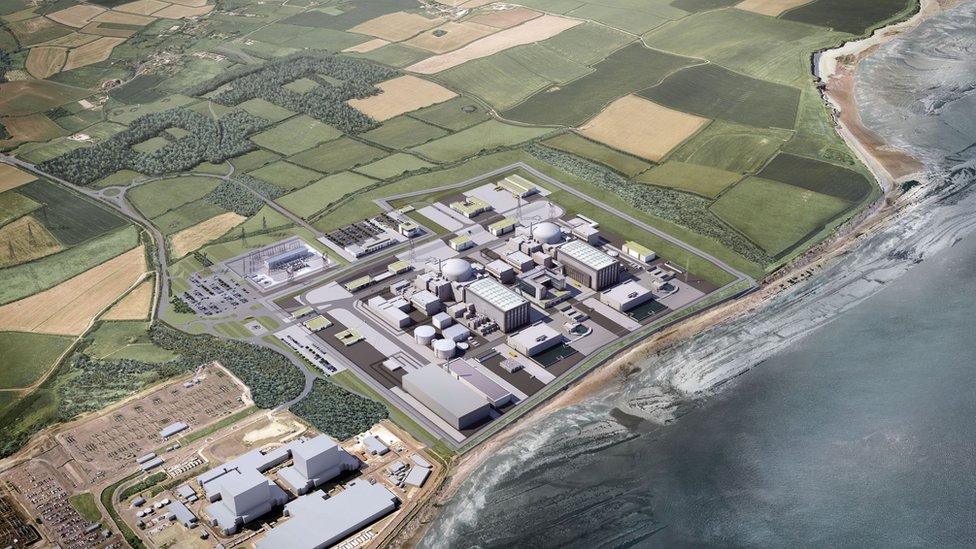What does China get out of Hinkley?
- Published
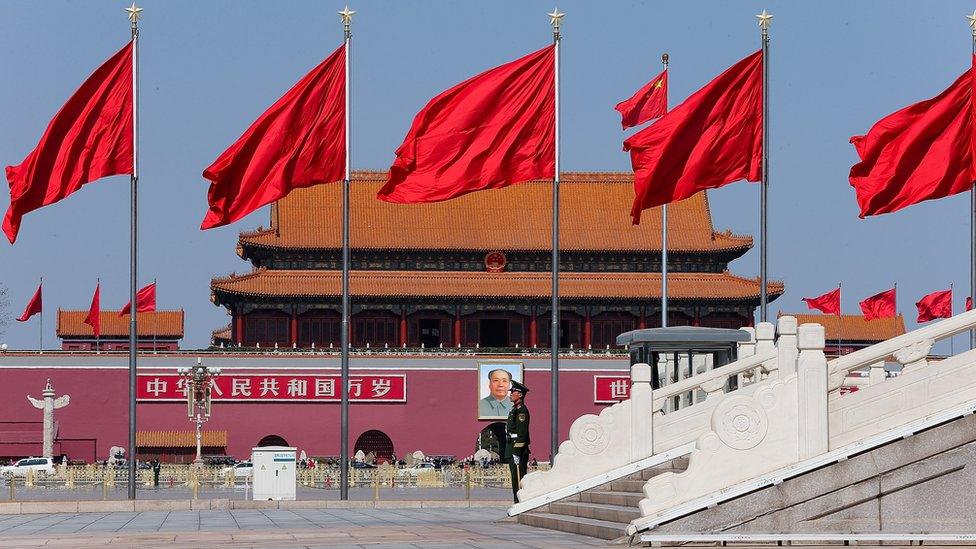
The Chinese, in the reported words of one senior British MP, are "people with whom we should sup with a long spoon".
Perhaps just ever so slightly paranoid, but then Gerald Howarth, external was making a reference to China's recent controversial ambitions to invest in the Hinkley C power plant - the first nuclear power station in the UK for a generation.
It was also a telling insight into what some in Beijing, external call the UK's "China-phobia" - brought into sharp focus by the proposed investment in Hinkley.
The Chinese could, and many said should, have walked away from Hinkley following UK Prime Minister Theresa May's eleventh-hour decision to delay the deal, and frankly many thought they might.
After all, the episode was seen as a major snub, one that the Chinese ambassador to the UK, Liu Xiaoming described as a "test of mutual trust, external" between the UK and China.
But the Chinese stayed in the game, and now state-owned firm China General Nuclear Power Group, or CGN, is welcoming the deal, saying it is "delighted" that Theresa May's government has approved the deal, despite the earlier trouble.
So why is Hinkley so important to the Chinese?
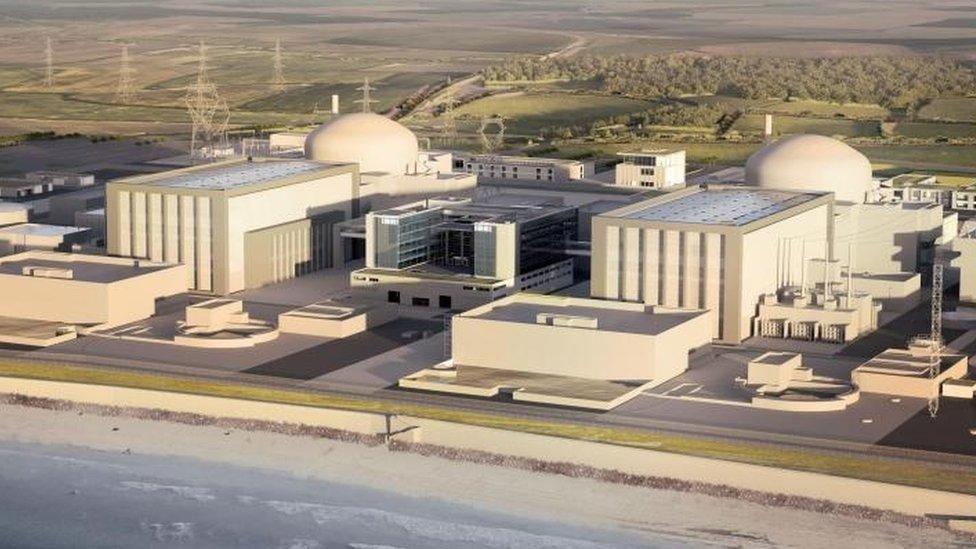
The new plant at Hinkley will be built next to two existing facilities
Credibility
The biggest reason is that the Hinkley deal gives China the credibility to do more deals of this sort. China is the most prolific builder of nuclear power plants, external anywhere in the world, according to King & Wood Mallesons, (KWM) a global law firm who advised CGN on the Hinkley deal.
In their words, "China… has a very good story to tell when selling its technology and new-build skills abroad."
But it would also be fair to say there's fear and suspicion surrounding China's ambitions, as illustrated by Mr Howarth's comments above.
Getting this seal of approval from the UK government means that China can win international credibility at a time when it is being rejected over national security issues in other markets such as the US and Australia, as I've written about before.
'The long game'
KWM says China wants generic design approval (GDA), external for its Hualong nuclear reactor technology in the UK.
Regulatory approval in the UK is seen as a stepping-stone to getting approval from other countries who regard the UK's approval process as a guide for their own. It's not clear whether Hinkley gives the Chinese that right away - but it's something that will be under consideration in the future.
And here's what's really at stake. China's future nuclear ambitions were evident from CGN's statement on the deal's approval.
"We are now able to move forward and deliver much-needed nuclear capacity at Hinkley Point, Sizewell and Bradwell with our strategic partners… and provide the UK with safe, reliable and sustainable low-carbon energy."
China wants to build more nuclear energy plants in the UK, and around the world. The Bradwell plant in Essex is thought to be next.
So, as KWM says, the "Hinkley C investment is about much more than providing… capital. It is about the long game: deploying Chinese technology, applying Chinese expertise, and ultimately having the Chinese supply chain build new nuclear power plants in the UK and many other jurisdictions".
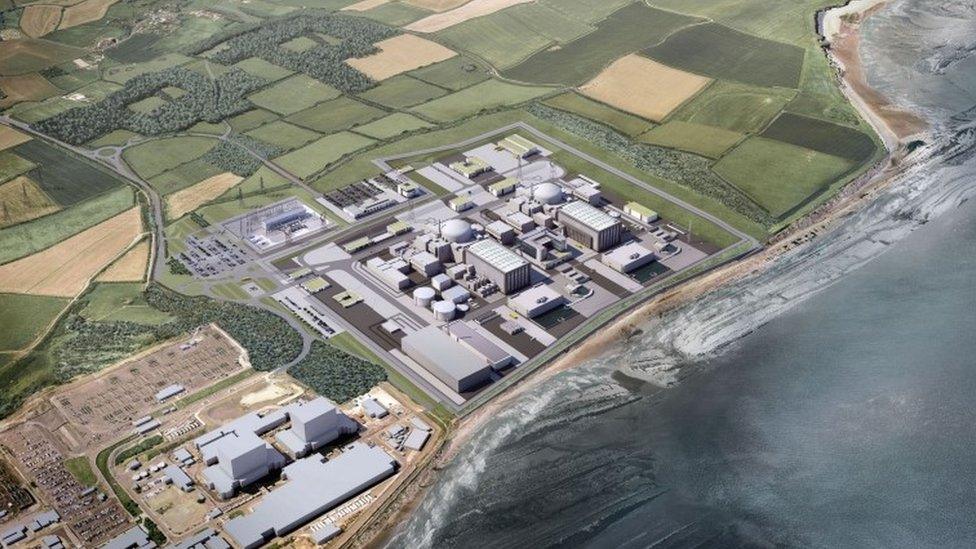
It isn't smooth sailing though - the UK has also set new conditions for China's investment, without specifically singling it out. Which may mean future investment by foreign countries in critical infrastructure projects in the UK will be more keenly scrutinised than ever before.
But in a world where the Chinese are awash with cash, and increasingly the only ones willing to spend it on massive infrastructure projects, expect more of these sorts of global deals to be announced in the future. China is already building dams, railways and power plants all over Asia, spending billions of dollars of its cash and, according to its critics, buying influence along the way.
This trend is only likely to continue if recent history is anything to go by. As one South-East Asian official told me on the side-lines of the Asean summit last week, when I asked him about increasing Chinese investment and influence in his own country versus the US's and Japan's, "if you were given a choice between $2m and $2bn, which would you choose?"
- Published15 September 2016

- Published15 September 2016
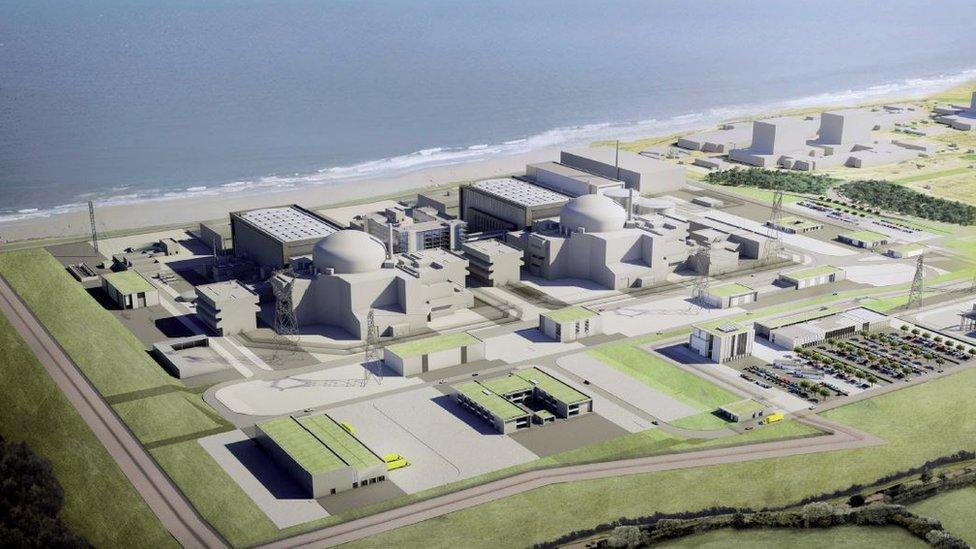
- Published4 September 2016
